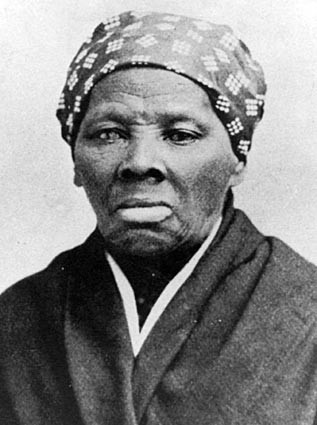
Harriet Tubman
It’s wonderful that the $20 bill will at some point in the reasonably near future bear the likeness of Harriet Tubman, a genuinely heroic figure in American history and one whose life-or-death efforts on behalf of equality were put to the test as an active participant in the struggles of the Civil War. That she represents two groups — women and African Americans — who had previously been shunned in the ceremony of our currency (the paper version of it, anyhow) was, and is, an additional point to be celebrated.
And there’s no doubting that Andrew Jackson, the general and president whose likeness she will supplant, had his flaws. Yes, he was murderous to the Native American population of the South, whose members he mercilessly slew or moved aside to make room for white settlers. And yes, he was a slave owner, a biographical fact that, on his part as well as many, many others in the group we call “forefathers,” becomes less and less easy to accept, much less venerate.
It is understandable — especially in the wake of last year’s horrific slaughter of nine African-American church-goers by a neo-Confederate racist — that we should start a rethinking process about the events and establishments that bear the name of such known slave-holders. In Tennessee, the matter of changing the name of the Democratic Party’s annual Jackson Day banquet in Nashville was put to a vote of the party’s executive committee. To the surprise of some, the majority favored retaining the homage to Jackson. Was this fair or foul?
Partly, the vote represented a certain regard for tradition. The name “Jackson” is, after all, one of the most thoroughly embedded names in the landscape of Americana. But, beyond that, the issue is more nuanced than a simple recitation of Andrew Jackson’s grave misdeeds would indicate. The victory of Jackson’s ragtag army over a disciplined British force at the Battle of New Orleans remains one of the signal events of American history. His presidency, moreover, was characterized by systematic efforts to democratize the office (for whites, anyhow) and, a century before FDR, to combat and diminish the power of organized money. Less known is the fact that, 35 years before Fort Sumter, Jackson preserved the Union by backing down the first attempt at secession by South Carolina.
For that matter, if we are to cleanse the national honor roll of slave-holders, what should we do with the name of our national capital? George Washington, too, was an offender on that count.
Let us be real here. Grant, Sherman, Lee, Jackson — they all did things on the battlefield that would have made George “Blood and Guts” Patton turn his head. Woodrow Wilson quite literally set back the progress of desegregation in his time. But just as there are no saints in our national pantheon, there are no Hitlers, either.
So Andrew Jackson will be moved to the back side of the $20 bill, and the front side will become Tubman’s. That seems about right.